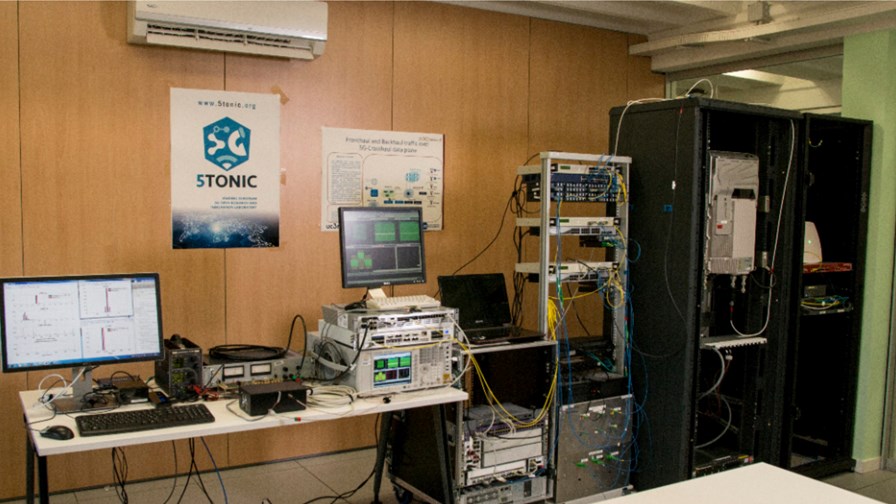
© 5TONIC and 5G-Crosshaul
- InterDigital reveals details of its contribution to the 5G-Crosshaul project
- Solutions using 60GHz and 70GHz for 5G fronthaul transport
- Also tested the approach for backhaul transport for small cells
- Two month integrated technology trial held at 5TONIC in Madrid
As development of the 5G standards races ahead (despite moans from European politicians who ridiculously think progress is too slow), so too do the numerous research and development projects organised by 5G-PPP and backed by Europe’s Horizon 2020 fund. Most have finished their funded periods, with Phase 2 projects well underway, but there are still some Phase 1 projects whose work and results have extended into this year.
One of which is the 5G-Crosshaul project, which from 2015 to last December developed a new 5G integrated fronthaul and backhaul transport solution – named 5G-Crosshaul – that enables flexible transport reconfiguration via Software Defined Networking (SDN) in a multi-tenant, multi-domain environment, while also meeting 5G’s stringent service requirements.
A two month trial of the solution commenced in November and the results are just now being released. Conducted at the 5TONIC open research and innovation lab in Madrid, it integrated technology innovations from InterDigital, Ericsson, Nokia, UC3M, NEC and CND. InterDigital reveals today that its contribution involved its millimeter wave (mmW) EdgeLink 60GHz and Fast-Forward 70GHz solutions, proving the feasibility of 5G fronthaul upper-layer and lower-layer transport over wireless.
The two solutions served as the mmW wireless Crosshaul transport solution for the fronthaul upper and lower layer split options, as well as for backhaul for a small cell. Fast-Forward proved that it can meet the stringent latency requirements of under 250 usec for the MAC-PHY lower layer split. In addition, backhaul and PDCP/RLC upper layer fronthaul were successfully transported simultaneously over a single high-capacity mmW EdgeLink connection.
“We are pleased with the successful conclusion of this two month trial marking the end of three years of close collaboration among 20 partners in the 5G-Crosshaul consortium,” said Alan Carlton, VP of InterDigital Europe. “This is a crucial step towards further trials scheduled in 2018 and 2019, including 5G-Crosshaul alongside 5G New Radio and 5G Core Network, paving the way for the commercial deployment of 5G networks.”
It’s also worth mentioning that another of the phase one 5G-PPP projects – Speed-5G – is also continuing, through to the end of March. This project aims to achieve a significantly better exploitation of heterogeneous wireless technologies by developing new techniques for optimising spectrum utilisation. The consortium of ten organisations is led by the University of Surrey an its 5GIC centre, and also includes BT and Intel. The group is holding a workshop in early March at BT Centre in London, comprising a mix of presentations and live demos. Details of how to attend are here. The 5G Monarch, XCast and 5G MiEdge project groups will also be in attendance.
Email Newsletters
Sign up to receive TelecomTV's top news and videos, plus exclusive subscriber-only content direct to your inbox.




